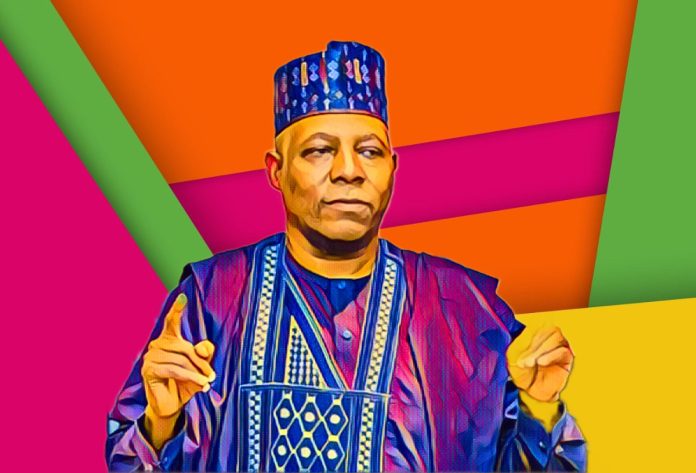Vice President Kashim Shettima has called for a robust global partnership to tackle internal displacement in Nigeria, reaffirming the Federal Government’s commitment to ensuring the safety and well-being of its citizens. Speaking at the launch of the ‘State Action Plans on Durable Solution to Internal Displacement’ at the Presidential Villa, Abuja, Shettima emphasized the need for a united effort transcending political boundaries.
Shettima acknowledged the support from the United States and other international partners, highlighting that addressing internal displacement requires a concerted and collaborative approach. The event marked a significant step in the administration’s strategy to tackle Nigeria’s internal displacement crisis, prioritizing the welfare of the displaced.
The action plan is part of the United Nations Secretary General’s Solution Agenda on Internal Displacement, which aims to help internally displaced persons (IDPs) find durable solutions, prevent new displacement crises, and ensure effective protection and assistance for those facing displacement.
Unveiling the programme, which is being implemented in four northern states – Adamawa, Benue, Borno, and Yobe – Shettima stressed: “For a country that has endured the devastations of economic disadvantages across generations, we cannot afford further expansion in the displacement of our people. We remain committed to ensuring that each displaced individual returns to a safer environment and is given a lifeline to start afresh.”
Drawing from his experience dealing with conflict and displacement, Shettima emphasized the need for a collaborative, cross-border approach to tackle the multi-faceted challenge. “Let us harness the strength of our partnerships, both local and international, to bring about lasting change,” he urged.
Shettima further stated: “We are here to craft solutions that will outlive us, that will offer future generations a place of hope, a home for all, and a land of opportunities where dreams can be pursued without worry. The journey is not merely about addressing the symptoms of displacement but also about tackling the root causes.”
Outlining the strategy of the Tinubu administration, Shettima pledged investment in sustainable development, education, and economic opportunities as critical components of a comprehensive solution. “By doing so, we not only address the immediate needs of the displaced, but also create a foundation for a more stable and prosperous future,” he said.
He called for collaborative efforts transcending borders to bring about lasting change, stating that “the task ahead is immense, but with determination, unity, and a clear vision, we can make a profound difference.”
The United Nations commended the efforts of the state governments in drafting action plans for durable solutions to the challenge. Speaking virtually, UN Deputy Secretary-General Amina Mohammed emphasized that attaining such solutions “is a priority for Nigeria and the United Nations Secretary-General,” noting that the global number of IDPs has doubled in 10 years to nearly 76 million.
“Over four million Nigerians remain in search of solutions to their forced displacement,” she stated, adding that the state’s action plans “capture the first essential steps towards solutions.”
UN Assistant Secretary-General and Special Advisor on Durable Solutions, Robert Piper, praised Nigeria’s commitment and leadership, being the first among 15 pilot countries to launch the programme. “Today, despite the warnings and the real challenges, I have the honour to say, on behalf of the Secretary-General, that Nigeria is the first of all our 15 pilot countries to formally launch government plans placing over four million IDPs and returnees on pathways to solutions,” he remarked.
Piper said the launch of the programme is evidence of the political commitment to addressing the plight of IDPs in Nigeria, observing: “In many ways, the plans you launch today provide a model of how governments can take responsibility for ending displacement.”
Borno State Governor, Babagana Zulum, reiterated the state government’s commitment to the implementation of the ‘Action Plans on Durable Solutions’, pledging that 15 per cent of the state’s yearly budget would be dedicated to projects under the initiative.
The launch of the State Action Plans marks a critical step in addressing internal displacement in Nigeria. The commitment from both national and international stakeholders underscores the urgent need for a united effort to provide durable solutions for millions of displaced persons, ensuring their safety, stability, and future prosperity.



